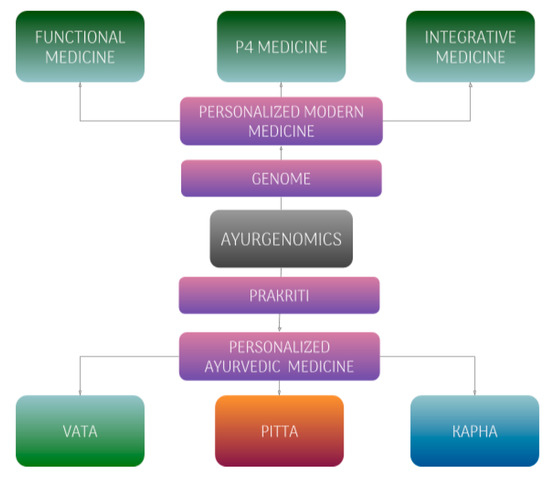Is Your Health Plan Truly Designed for You? Ayurveda Has Been Doing It for Over 5,000 Years
- Dr Rakesh VG
- Jun 22
- 3 min read
Updated: Jun 28
By Dr Rakesh Ayureshmi. Ayureshmi Ayurveda wellness centre, Kollam, Kerala, India
What if your unique body type, mental tendencies, digestive style, and even response to medications were already mapped out in a 5,000-year-old medical system? Today’s buzz around “precision medicine” may feel cutting-edge, but Ayurveda—the ancient Indian system of holistic healing—has long held that no two individuals are the same, and therefore, no two treatments should be identical.
In an era of chronic diseases, rising mental health issues, and generic treatment protocols, personalized care isn’t just desirable—it’s necessary. Ayurveda, with its dosha-based, constitution-specific approach, is finally gaining recognition for offering what modern science is now racing to implement: individualized, preventive, and integrative medicine.
1. Beyond One-Size-Fits-All: Ayurveda’s 360° Personalization
Modern allopathy often follows a population-based treatment model: the same pill for the same diagnosis. Ayurveda, in contrast, begins with you—your Prakriti (unique constitution), Vikriti (current imbalance), Agni (digestive fire), Ama (toxicity levels), and even Desha and Kala (location and season).
Scientific Validation:
A 2015 study published in Nature found a genomic correlation between Ayurvedic Prakriti types (Vata, Pitta, Kapha) and specific gene expressions. Researchers at CSIR and the University of Pittsburgh identified gene polymorphisms that align with Prakriti classification, suggesting Ayurveda's biological basis for categorizing individuals is not only logical but measurable .
Metaphor to Understand:
Think of your body like a fingerprint—no two are alike. Where modern medicine sees a crowd, Ayurveda sees the individual in the crowd.
2. Your Body Knows Best: Doshas as the Blueprint of Individual Health
The three doshas—Vata, Pitta, and Kapha—aren’t abstract energies; they are physiological forces governing motion, metabolism, and structure. Your unique combination of doshas forms your Prakriti, which guides:
Disease susceptibility
Dietary needs
Emotional resilience
Circadian rhythm
Medication tolerance
This makes Ayurveda inherently predictive and preventive—the ultimate aim of precision medicine today.
Supporting Research:
In a 2016 review published in Evidence-Based Complementary and Alternative Medicine (eCAM), researchers noted that Prakriti-based phenotyping may enhance stratification in clinical trials and drug response prediction, aligning with pharmacogenomics—the essence of precision medicine .
3. Ayurgenomics: Where Ancient Insight Meets Molecular Science
Ayurgenomics is a new interdisciplinary science that integrates Ayurvedic classification with modern genomic tools. This synergy is being explored in:
Personalized drug response (e.g., how Pitta individuals may metabolize drugs faster)
Chronic disease prediction (Kapha types are more prone to obesity and diabetes)
Mental health mapping (Vata types more susceptible to anxiety)
Expert Insight:
Dr. Bhushan Patwardhan, leading researcher and Vice Chairman of India’s University Grants Commission, states:
“Ayurveda has anticipated many principles of precision medicine. With Ayurgenomics, we are not just validating Ayurveda—we are advancing modern medicine.”
4. Food, Mind, and Medicine: Customization Across All Levels
Modern nutrition often breaks food down into macronutrients; Ayurveda sees it as rasa (taste), virya (potency), vipaka (post-digestive effect), and most importantly—suitability for your dosha. Likewise, lifestyle, emotional tendencies, daily rhythms, and even detoxification protocols (Panchakarma) are all individually tailored.
Unlike the modern model where the mind and body are treated separately, Ayurveda is integrative at its core. Recent neuroscience shows gut health influences mood—a truth Ayurveda understood centuries ago.
5. Ayurveda in Clinical Practice: Case-Based Personalization Works
At integrative clinics worldwide, Ayurvedic personalization is showing real-world success:
A 2018 pilot trial in the Journal of Alternative and Complementary Medicine showed significant improvement in IBS symptoms with dosha-specific herbal and dietary management .
Ayurveda-based cancer support protocols in integrative oncology centers are improving patient quality of life through individualized rasayana (rejuvenative) treatments
[ example - BRAHMARASAYANA.]
When combined with chiropractic correction, marma therapy, and mindful nutrition—as done at progressive wellness centers—this personalized framework creates a healing ecosystem rather than isolated treatment.
Conclusion: We Don’t Need to Reinvent Precision Medicine—We Need to Respect It in Its Oldest Form.
Ayurveda doesn’t just fit into the precision medicine model—it is its root ancestor. For those seeking true personalization, preventive insight, and holistic well-being, Ayurveda offers not only a science, but a philosophy for living in sync with your unique nature.
As technology catches up, perhaps the future of medicine will look more like its ancient past: rooted in self-awareness, guided by nature, and customized for the individual.





Comments